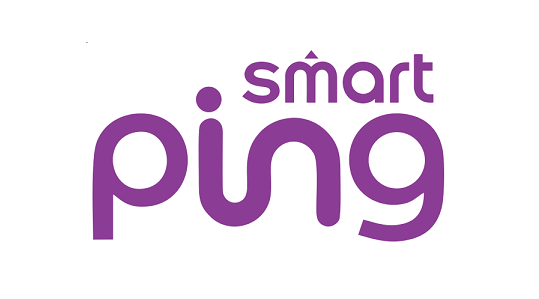Yes, a cloud communication platform can be accessed from various devices and platforms. These platforms include PCs, laptops, tablets, and smartphones, as well as operating systems including Windows, macOS, iOS, and Android. This is made feasible by the use of web-based applications and mobile apps, which provide users with a consistent experience and the opportunity to communicate from any location and on any device.
List of 20 Best Cloud Communication Platform
Toggle is an advanced cloud telephony platform that provides top-notch IVR and cloud center solutions to businesses of all types. With its intuitive interface, building your own IVR system takes only 5 minutes. The user-friendly design and modern int...Read More Toggle
Signalmash is the pioneering CPaaS solution that transforms communication by seamlessly combining messaging APIs, VoIP, elastic SIP trunking, and hosted PBX features into one comprehensive communications hub. Our innovative platform sparks creativity...Read More Signalmash
ClearTouch is a highly dependable and adaptable call center solution that offers a budget-friendly delivery approach. Our Always-on cloud delivery guarantees real-time access to the latest version of ClearTouch, making it the ideal choice for all typ...Read More ClearTouch
Alianza is a cloud communications platform for service providers. Our powerful suite of tools enables providers to quickly create and launch innovative communication solutions for both businesses and residential customers. With a variety of offerings...Read More Alianza
LiveKit: solution for seamlessly integrating live video and audio capabilities into your platform. Our easy-to-use APIs allow you to enhance your platform with interactive live streaming, video calls, in-game communication, and even robotics teleoper...Read More LiveKit
TTBS Smartflo is acommunication solution brought to you by Tata Tele Business Services. This feature-packed, cloud-based offering promises cost-effective advantages and facilitates effortless and secure collaboration for your business. Elevate your w...Read More TTBS Smartflo
Edworking solution for remote work. Our comprehensive, free platform streamlines your tasks with Trello, facilitates team communication through chat, and enhances efficiency with work stories. Stay connected with video calls and revolutionize your wo...Read More Edworking
Smartping - the leading cloud-based telephony and communication platform. Our cutting-edge solutions are specifically designed to empower businesses, marketers, and leaders in optimizing their efficiency and productivity. Boasting a successful 6-year...Read More Smartping
Cloudli is an innovative software that simplifies communication procedures for organizations. By offering advanced call management features, a user-friendly interface, and robust security measures, Cloudli enables teams to maintain seamless connectiv...Read More Cloudli
KrispCall - the perfect cloud-based phone system designed to meet the needs of all businesses, big or small. Our platform provides cost-effective and reliable telephony solutions, including the option to easily obtain international phone numbers from...Read More KrispCall
Whooper Messenger - the essential solution for efficient and effortless team collaboration. Stay connected with your team through personalized broadcast messages and effortlessly access and share chat history, attachments, and files. Keep track of un...Read More Whooper
Cisco WebEx solution for online meetings. Our platform offers a hassle-free way to collaborate with colleagues and clients, making use of the convenient Collaboration Meeting Rooms feature. Effortlessly join cloud-based meetings with a simple click,...Read More Cisco WebEx
Vox CPaaS – solution for elevating your business application. Seamlessly integrate real-time communication features to expand your reach globally and enhance mobility. Revolutionize your apps functionality and simplify connections with people...Read More Vox CPaaS
Tresta is a virtual phone system designed for businesses of any size. Revolutionize the way you work with the ability to manage calls, messages, and call settings from your smartphone, no matter where you are. Say goodbye to costly phone systems and...Read More Tresta
CloudAgent-lite by Ozonetel is a virtual phone system for your business. With powerful features like IVR and cloud telephony, it enhances your communication capabilities and boosts productivity. Say goodbye to dated phone systems and hello to a prof...Read More Ozonetel CloudAgent-lite
MiCloud Connect is a communication solution that simplifies operations and enhances team interactions for companies of all sizes. With its integrated features, user-friendly interface, and secure cloud-based services, this powerful platform boosts pr...Read More MiCloud Connect
TeleSign is security software that safeguards e-commerce platforms with advanced verification and fraud prevention measures. It provides a global solution that transforms data into actionable insights for continuous protection and establishing trust...Read More TeleSign
The Real PBX is a cloud communication solution for businesses. We offer toll-free and local business phone numbers with advanced features like IVR, Call Forwarding, Call Barge, Call Recording, and Analytics to enhance your communication processes. Ou...Read More The Real PBX
KloudTalk, the perfect cloud-based phone system for businesses seeking a seamless and productive communication experience. Say farewell to expensive hardware requirements such as PBX and complicated setup procedures, as KloudTalk hosts everything in...Read More KloudTalk
Cutehr is a cloud-based HR solution software designed to optimize business productivity. Our all-in-one HR platform offers a range of services that can be easily managed through a single dashboard, tailored to suit the specific needs of your organiza...Read More Cutehr
Learn More About Cloud Communication Platform
- What Is Cloud Communication Platform?
- What Are The Recent Trends In Cloud Communication Platform?
- Benefits Of Using Cloud Communication Platform
- Important Factors To Consider While Purchasing A Cloud Communication Platform?
- What Are The Key Features To Look For in A Cloud Communication Platform?
- Why Do Businesses Need Cloud Communication Platform?
- How Much Time Is Required To Implement Cloud Communication Platform?
- What Is The Level Of Customization Available In Cloud Communication Platform?
- Which Industries Can Benefit The Most From Cloud Communication Platform?
- Conclusion
What Is Cloud Communication Platform?
A Cloud Communication Platform, sometimes referred to as a Cloud Communications Service, is a sort of software or infrastructure that allows businesses and individuals to communicate and cooperate via multiple digital channels over the Internet. These platforms leverage cloud technology, which allows users to access communication tools and services from any computer or mobile device.
One of the most important aspects of a Cloud Communication Platform is the usage of cloud hosting, which eliminates the need for customers to keep and manage physical communication infrastructure on site. This not only lowers expenses for enterprises, but also increases flexibility and scalability for their communication requirements. Cloud communication platforms provide a variety of features and tools to help people communicate more efficiently and effectively.
Voice and video calling, instant messaging, team collaboration, and file sharing are just a few examples. With the rise of remote work, these platforms have grown in popularity due to their capacity to link people and teams from various locations. Furthermore, cloud communication platforms frequently include advanced features such as automated call routing, virtual phone numbers, and call statistics.
This can greatly improve communication procedures and consumer interactions. When choosing a Cloud Communication Platform for your organization, it is critical to analyze your specific needs and goals in order to discover the best fit. Security, dependability, usability, and affordability should all be taken into account while making a decision.
What Are The Recent Trends In Cloud Communication Platform?
The field of communication has altered tremendously in response to technological improvements, with one of the most notable developments in recent years being the introduction of cloud communication platforms. These platforms use cloud-based technology to provide business communication solutions that are efficient, cost-effective, and secure. With the growing need for remote work and virtual collaboration, the market for cloud communication solutions is constantly developing.
we'll look at the most recent trends in this area and help you make an informed decision when selecting the best cloud communication platform for your business.
1. Unified Communication As A Service (UCaaS): One of the most prominent trends in cloud communication systems is the rise of Unified Communication as a Service (UCaaS). This service provides a comprehensive communication solution by combining several communication channels such as audio, video, and texting on a single platform. This enables seamless communication and cooperation among team members, regardless of location, device, or preferred style of communication.
2. Artificial Intelligence (AI) Integration: Another trend in cloud communication platforms is the incorporation of artificial intelligence (AI) technologies. These systems can use AI-powered tools to automate a variety of functions, including speech recognition, chatbots, and sentiment analysis, to improve the entire communication experience. AI integration also offers predictive analytics, which helps firms examine communication patterns and make data-driven decisions.
3. Bring Your Own Device (BYOD) Support: In today's fast-paced business world, many firms are implementing a "Bring Your Own Device" (BYOD) policy, which allows employees to use personal devices for work purposes. As a result, cloud communication solutions increasingly support BYOD, allowing employees to access the platform and connect with their team members on their own devices. This not only increases efficiency but also lowers hardware expenses for organizations.
4. Integration Of Collaboration: Tools Collaboration and communication are inextricably linked, which is why combining cloud communication platforms with collaboration solutions like project management software has grown popular. This integration enables real-time communication and collaboration, which streamlines process and increases team productivity.
5. Concentrate On Security And Compliance: With the rise in cyber threats and data breaches, security has become a top priority for businesses. As a result, cloud communication systems now prioritize security features like end-to-end encryption and multi-factor authentication. In addition, these platforms ensure compliance with numerous standards, such as GDPR and HIPAA, in order to preserve sensitive data and maintain client trust.
Benefits Of Using Cloud Communication Platform
Cloud communication platforms are a game changer in the business world, and their benefits cannot be overlooked. As technology continues to advance, more and more businesses are turning to cloud communication platforms to streamline their communication processes and improve overall efficiency.
In this buyer's guide, we will discuss the key benefits of using a cloud communication platform, so you can make an informed decision when considering your options.
1. Cost Savings: One of the main benefits of using a cloud communication platform is the cost savings that it offers. With a cloud-based system, there is no need for expensive hardware and maintenance costs. Additionally, most cloud communication providers offer pay-as-you-go pricing models, which allow you to only pay for the features and services that you need. This can lead to significant cost savings in the long run.
2. Scalability: Another advantage of a cloud communication platform is its scalability. This means that as your business grows, your communication needs can easily be accommodated by the platform without any extra costs or delays in service. Whether you have a small team or a large organization, a cloud communication platform can grow with you and provide the necessary flexibility to meet your changing needs.
3. Accessibility: With a cloud-based communication platform, you and your team can access it from anywhere, at any time. This is especially beneficial for businesses with remote or distributed teams, as it allows for seamless communication and collaboration regardless of geographical location. It also means that you can stay connected even when you are on-the-go, ensuring that your communication is not interrupted.
4. Advanced Features: Most cloud communication platforms offer a wide range of advanced features that are not available with traditional communication systems. These may include real-time chat, video conferencing, voicemail transcription, and more. These features not only improve the quality of your communication but also enhance productivity and efficiency within your team.
5. Reliability: With a cloud communication platform, you can enjoy high levels of reliability and uptime. As the service is hosted on secure and redundant servers, there is minimal risk of downtime or technical issues. This ensures that your business operations are not disrupted and allows you to focus on your core tasks without worrying about communication disruptions.
6. Integration: A good cloud communication platform will seamlessly integrate with your existing business tools and systems, such as CRM, email, and project management software. This allows for a more streamlined and efficient workflow, as all your essential tools and processes are connected in one central location.
Important Factors To Consider While Purchasing A Cloud Communication Platform?
As the demand for remote work and virtual communication grows, more firms are looking to cloud communication tools to streamline their interactions. However, with so many options on the market, it might be difficult to select the best one for your organization. In this buyer's guide, we'll go over the key things to consider before choosing a cloud communication platform.
1) Compatibility And Integration: Before making a selection, make sure the platform is compatible with your current systems and can interact with other critical tools such as CRM, email clients, and project management software. This will allow you to streamline your workflow and reduce the learning curve for your team members.
2) Reliability And Security: Because sensitive information is communicated on these platforms, it is critical to select a trustworthy and safe provider. To protect the security of your data, look for reputable service providers who offer features such as encryption, multi-factor authentication, and regular backups.
3) Scalability: Your business needs are continuously changing, and your communication platform must be able to keep up. Make sure the platform can handle your present user demand and can scale up as your organization grows.
4) User-Friendly Interface: A confusing and crowded interface might reduce your team's productivity and lengthen its learning curve. Look for a platform with a simple and straightforward design, quick navigation, and minimum training requirements.
5) Affordable Pricing: When investing in cloud communication platforms, it is critical to evaluate the cost and ensure that it is within your budget. Compare price plans from various providers and select the one that provides the most value for the money.
6) Customer Support: When dealing with technology, problems might develop, and it is critical to have dependable customer service to help you. Look for a company who provides 24/7 assistance and has multiple contact options such as phone, email, and live chat.
7) Mobile Compatibility: Given the prevalence of mobile work, it is critical to select a platform that is mobile-friendly and accessible via applications or web browsers. This will help to ensure effective communication even while your team is on the move.
8) Capabilities And Customization Options: Based on your company's requirements, seek for a platform that has vital capabilities like as phone and video conferencing, messaging, file sharing, and screen sharing. Additionally, look at customization options to fit the platform to your individual needs. When choosing a cloud communication platform for your organization, consider these considerations to make an informed decision.
What Are The Key Features To Look For in A Cloud Communication Platform?
When selecting a Cloud Communication Platform, customers should check for a few important elements to guarantee they are making an informed purchase. These features include the following:
1. Multi-Channel Communication Capabilities: A decent Cloud Communication Platform should support a number of communication channels, including voice, video, SMS, email, and chat, which can all be combined into a single platform. This enables smooth and effective communication across several media, which boosts productivity and customer satisfaction.
2. Scalability And Flexibility: As firms expand and adapt, their communication requirements will alter. A Cloud Communication Platform should be able to scale up and down based on the demands of the organization. It should also be adaptable, allowing for customization and integration with other corporate applications.
3. Reliability And Uptime: Communication is essential for any organization, and downtime can lead to lost income and dissatisfied consumers. As a result, it is critical to select a trustworthy platform with a high uptime percentage, guaranteeing that communication services are available at all times.
4. Cross Platform Compatibility: In today's digital environment, consumers use a variety of devices, operating systems, and browsers. A good Cloud Communication Platform should be adaptable with a variety of devices and platforms, allowing users to access it from any location and using any device.
5. Sophisticated Features: Aside from fundamental communication skills, purchasers should search for sophisticated features like call recording, video conferencing, auto-attendant, and analytics. These features can improve the overall communication experience and give useful information for organizations.
6. Security And Compliance: When sensitive business information and personal data are transmitted via communication platforms, it is critical to select a platform that is both safe and compatible with data protection standards. Look for features like end-to-end encryption and compliance certifications to protect the security of your data.
7. Seamless Integration: A Cloud Communication Platform should work easily with other corporate tools including CRM software, project management tools, and help desk software. This enables a more simplified and effective communication procedure.
Why Do Businesses Need Cloud Communication Platform?
Cloud Communication Platforms, also known as Cloud Communications Solutions, are becoming increasingly popular among enterprises of all kinds. With the advent of remote work and the growing reliance on digital communication, having a dependable and efficient communication system is critical for organizations to thrive in today's dynamic and fast-paced world.
we'll look at the top reasons businesses need a Cloud Communication Platform and how it may help them.
1. Streamlined Communication: A Cloud Communication Platform serves as a consolidated hub for all communication channels, including voice, messaging, video conferencing, and more. This implies that employees can easily interact and communicate with one another, regardless of location or device, resulting in enhanced productivity and efficiency.
2. Cost-Effective: Unlike traditional communication systems, which require expensive hardware installations and maintenance, Cloud Communication Platforms operate on a subscription basis, removing the need for initial capital inputs. This makes it a more cost-effective and scalable alternative for businesses, particularly small and medium-sized enterprises.
3. Flexible And Scalable: A Cloud Communication Platform allows businesses to simply add or remove users, services, and features based on their changing requirements. This flexibility also enables firms to enhance their communication capabilities without incurring extra infrastructure expenditures, making it a great alternative for growing businesses or those facing seasonal variations.
4. Reliable And Secure: Cloud communication platforms use cutting-edge technology to offer high levels of dependability and security. Businesses that use data encryption and backup solutions can be confident that their communication channels are safe from cyber attacks and any disruptions.
5. Improved Customer Experience: In today's competitive company environment, providing a seamless and personalized customer experience is critical for retaining and acquiring clients. A Cloud Communication Platform enables organizations to integrate several communication channels, making it easier to communicate with customers anytime, anywhere, resulting in increased customer satisfaction and loyalty.
6. Remote Work Support: With the growing popularity of remote work, businesses need a communication system that can handle employees working from various places and devices. A Cloud Communication Platform includes capabilities such as Unified Communications and mobile apps, allowing employees to stay connected and productive from anywhere in the world. In a word, a Cloud Communication Platform provides businesses with a cost-effective, adaptable, and dependable solution that can improve communication capabilities, increase efficiency and productivity, and provide a consistent customer experience. With the variety of benefits it provides, it has become a must-have for organizations wanting to stay competitive in today's digital age.
How Much Time Is Required To Implement Cloud Communication Platform?
The time required to develop a Cloud Communication Platform varies depending on several factors, including the organization's size, system complexity, and level of customization required. On average, the implementation procedure can last from a few weeks to a few months. To begin, evaluate the current communication infrastructure and identify areas that can benefit from a cloud-based solution.
This process can take between 2-4 weeks, depending on the size of the organization. It entails completing a detailed examination of business requirements, current hardware and software, and technical skills inside the firm. Once the assessment is completed, the following step is to select the best Cloud Communication Platform for your business needs.
This procedure can take up to 1-2 weeks and includes shortlisting potential providers, reviewing their features and cost, and requesting demonstrations from the chosen providers. After selecting a provider, the installation procedure begins. This phase can take between 4 and 8 weeks, depending on the complexity of the systems and the level of customization necessary.
It include installing the appropriate hardware and software, integrating the platform with existing systems, and instructing personnel on how to utilize the new solution. Finally, following implementation, it is critical to conduct extensive testing and fine-tuning to ensure that the platform is working as planned. This process typically takes 1-2 weeks and include detecting and resolving any bugs or malfunctions.
Overall, the implementation of a Cloud Communication Platform can take between 8 and 16 weeks, depending on the organization's individual demands and requirements. To avoid delays, undertake a thorough assessment, select the appropriate service, and ensure proper training and testing. Businesses that plan and execute an effective implementation process can swiftly adjust to the new platform and gain its benefits.
What Is The Level Of Customization Available In Cloud Communication Platform?
A Cloud Communication Platform (CCP) is a unified communications technology that allows businesses to make and receive phone calls, send messages, and host video conferences over the internet. One of the most important considerations when selecting a CCP is the level of customisation available. This is important because it enables firms to personalize the platform to their specific communication requirements. CCPs provide for many levels of customisation, ranging from simple to complex features.
Here are some important variables to consider while assessing the level of personalization in a CCP:
1. User Interface Customization: This refers to the ability to customize the platform's user interface to reflect your brand's aesthetics and preferences. Some CCPs provide modest customization options such as color schemes and logos, while others enable for more substantial changes such as the creation of bespoke widgets and dashboards.
2. Call Routing Customization: Effective call routing is critical for managing incoming calls efficiently. A CCP allows firms to define call routing rules based on time of day, location, and agent availability. Some platforms also allow you to construct bespoke IVR menus and call queues for improved call management.
3. Integration And API customization: Integration with various business technologies is critical to a smooth operation. CCPs with open APIs enable custom interfaces with other software and apps, allowing organizations to construct a communication environment tailored to their own requirements.
4. Advanced Feature Customization:CPs provide a variety of communication services, including call recording, voicemail, conferencing, and more. The extent of customization for these features differs between systems. Some provide basic settings, while others allow for more advanced changes, such as creating distinct voicemail greetings for different departments.
5. User Role Customization: In larger businesses, having multiple user roles is critical for managing communication and access levels. Businesses can utilize CCPs to modify user roles and permissions, ensuring safe and efficient communication throughout the firm. Finally, the extent of customisation in a CCP is determined by the platform's features. Businesses must determine their specific communication needs and assess the level of customization provided by each choice in order to find the greatest fit for their firm.
Which Industries Can Benefit The Most From Cloud Communication Platform?
Cloud communication solutions are transforming commercial communication. Because of their varied and strong characteristics, they have become a popular choice for businesses of all sizes and industries. However, certain industries will profit the most from these platforms. In this buyer's guide, we will highlight the top industries that can improve company efficiency and productivity by utilizing cloud communication platforms.
1. Healthcare Business: The healthcare business handles sensitive and vital information on a daily basis. Healthcare personnel can use a cloud communication tool to safely interact and collaborate in real time. They may also easily access patient data, communicate test results, and even hold virtual consultations. Cloud communication systems also include HIPAA-compliant capabilities that ensure the confidentiality and security of patient information.
2. Education Sector: The education sector has also begun to use cloud communication systems for remote learning purposes. These systems offer a dependable and efficient means to hold virtual classes, online tests, and group discussions. They also include capabilities such as screen sharing, whiteboarding, and recording to make learning more participatory and interesting.
3. Retail Industry: The retail industry must constantly communicate with customers, suppliers, and staff. They may manage communications more efficiently with a cloud communication platform, including SMS, audio, and social media messaging. This leads to improved customer service, easier supply chain management, and increased revenue.
4. Finance Sector: The finance sector operates in a fast-paced and highly regulated environment, thus communication must be exact and secure. Cloud communication solutions include superior encryption and security features, making them ideal for financial institutions. The platforms also provide video conferencing, real-time collaboration, and audio recording capabilities, allowing financial professionals to interact effectively and make informed decisions.
5. Non-Profit Organizations: Non-profits frequently have limited resources and rely significantly on communication to garner awareness and cash for their mission. A cloud communication platform can assist these groups in reaching a bigger audience, engaging with donors and volunteers, and efficiently managing their operations. These platforms are ideal for non-profits because to their ease of use and low cost.
Conclusion
Finally, investing in a cloud communication platform provides various benefits to enterprises of all sizes. With its unequaled flexibility, scalability, and efficiency, it is an essential tool in today's fast-paced and highly competitive market. A cloud communication platform has the ability to transform your organization's operations by reducing costs, improving collaboration, and streamlining communication processes.
When choosing a cloud communication platform, you must conduct extensive study and evaluation of your possibilities. Budget, scalability, functionality, and integrations should all be carefully considered when selecting the best solution for your individual requirements. Furthermore, you must examine the long-term ramifications and possible expansion of your firm. Choosing a scalable and future-proof solution is critical to avoiding repeated platform changes and significant costs later on. Finally, do not underestimate the value of dependable customer service.
Your preferred cloud communication platform should provide a responsive and experienced support team to assist you in the event of any technical challenges or issues. In short, investing in a cloud communication platform allows you to streamline communication procedures, boost cooperation, cut expenses, and position your company for success in the ever-changing digital market. Take the time to investigate and select a solution that meets your organization's needs, and watch your business develop.
Cloud Communication Platform FAQ's
Can Cloud Communication Platform Be Accessed Across Multiple Devices And Platforms?
Is Cloud Communication Platform Future-Proof And Adaptable To Emerging Technologies Like Ai, Blockchain or Iot?
Yes, a Cloud Communication Platform is future-proof and easily adaptable to new technologies such as AI, blockchain, and IoT. These platforms are intended to be adaptable and expandable, allowing for seamless integration with new technologies as they become available. Furthermore, many cloud communication providers are regularly updating their services to incorporate the most recent innovations, ensuring that their platform remains current and relevant in the ever-changing technological scene. This offers enterprises a dependable and robust answer for their communication needs.
Is There A Free Trial Offered To Assess Cloud Communication Platform Before Committing?
Yes, most respectable cloud communication platform providers provide a free trial period so that consumers can evaluate the platform before making a commitment. This enables organizations to test the platform's features and functioning and assess whether it fits their communication requirements. It is recommended that you take advantage of this free trial before making a decision to ensure that the platform is a good fit for your company.
Does Cloud Communication Platform Offer Data Security Features And Meet Regulatory Compliance Standards?
Yes, most cloud communication systems have strong data security measures and adhere to industry standards such as HIPAA, GDPR, and CCPA. To maintain the highest level of security for sensitive information, these systems employ end-to-end encryption, safe data storage, and rigorous access controls. They also go through security audits on a regular basis to ensure compliance and give users piece of mind.
Can Cloud Communication Platform Integrate Seamlessly With Existing Tools And Platforms?
Yes, a cloud communication platform can work smoothly alongside existing tools and platforms. It provides a variety of integration options, including APIs, webhooks, and plug-ins, for connecting with popular programs such as CRM software, email clients, and project management tools. This allows firms to streamline their communication procedures and access all of their tools in one location, increasing efficiency and production. Furthermore, with automatic updates and software upgrades, a cloud communication platform offers a seamless integration experience.






















